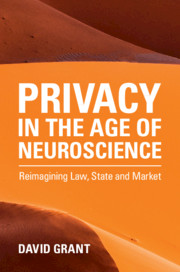9 - Regulation and the State
from Part II - Regulation
Published online by Cambridge University Press: 09 April 2021
Summary
The State has been a mythological entity through its history, from its sovereign phase to its present dispersed, nodal, regulatory phase. This dispersal raises important questions about gradual disappearance of public accountability. It also points to such other key issues as the dilution of personal responsibility, especially when considered in the context of the determinative implications of neuroscientific research. These trends are further emphasised by the increasingly avaricious, non-consensual digitisation of the State and the threat to democratic values posed by such trends as data brokering and algorithmic friendliness. The consequential move to a non-mythological State can be produced by the reimagining of agencies as purpose-based and which operate on existential, fiduciary principles in a manner that avoids Pettit’s republicanism. How this transition can take place is evidenced by the difference between mythological and non-mythological criminal justice, a model for which is presented.
Keywords
- Type
- Chapter
- Information
- Privacy in the Age of NeuroscienceReimagining Law, State and Market, pp. 244 - 271Publisher: Cambridge University PressPrint publication year: 2021

